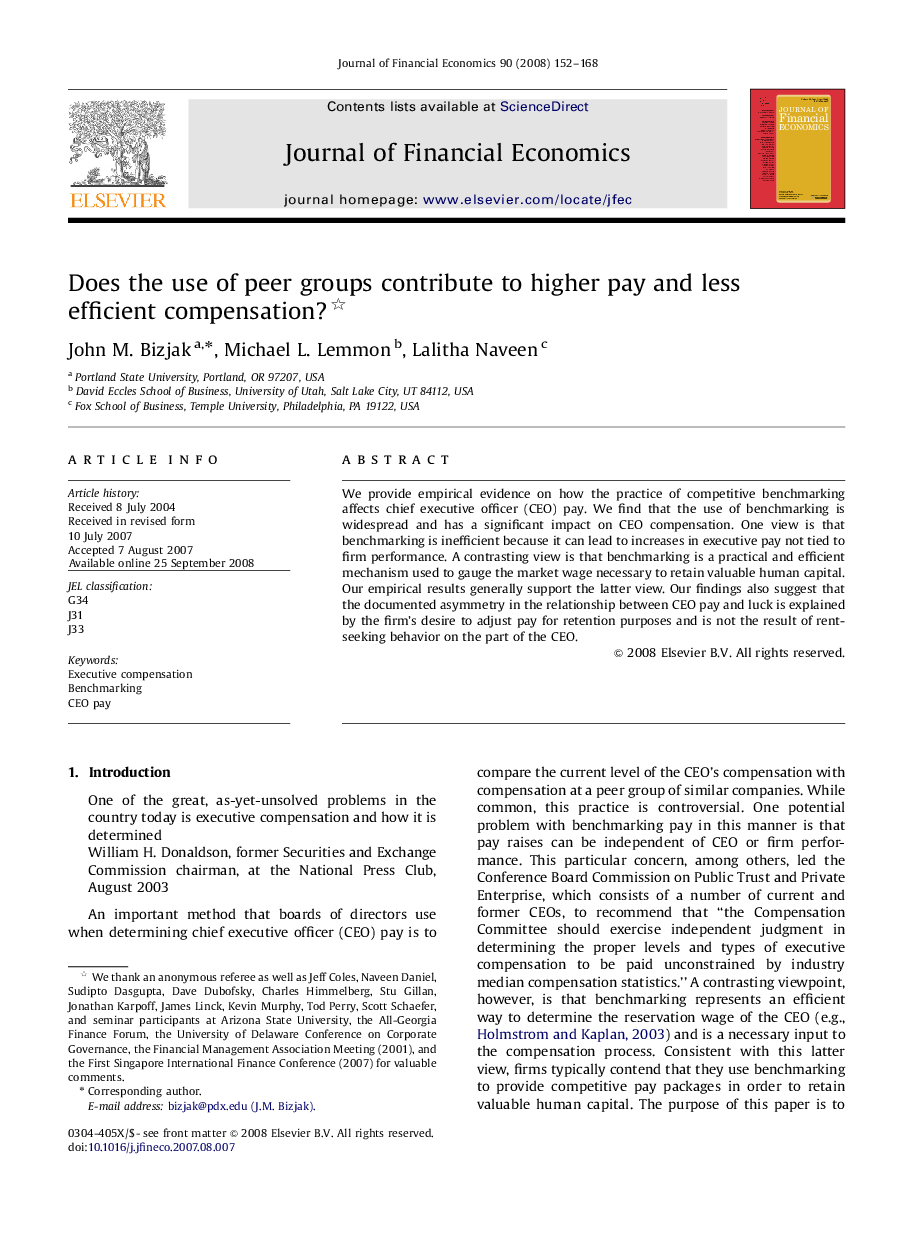| Article ID | Journal | Published Year | Pages | File Type |
|---|---|---|---|---|
| 960484 | Journal of Financial Economics | 2008 | 17 Pages |
We provide empirical evidence on how the practice of competitive benchmarking affects chief executive officer (CEO) pay. We find that the use of benchmarking is widespread and has a significant impact on CEO compensation. One view is that benchmarking is inefficient because it can lead to increases in executive pay not tied to firm performance. A contrasting view is that benchmarking is a practical and efficient mechanism used to gauge the market wage necessary to retain valuable human capital. Our empirical results generally support the latter view. Our findings also suggest that the documented asymmetry in the relationship between CEO pay and luck is explained by the firm's desire to adjust pay for retention purposes and is not the result of rent-seeking behavior on the part of the CEO.
